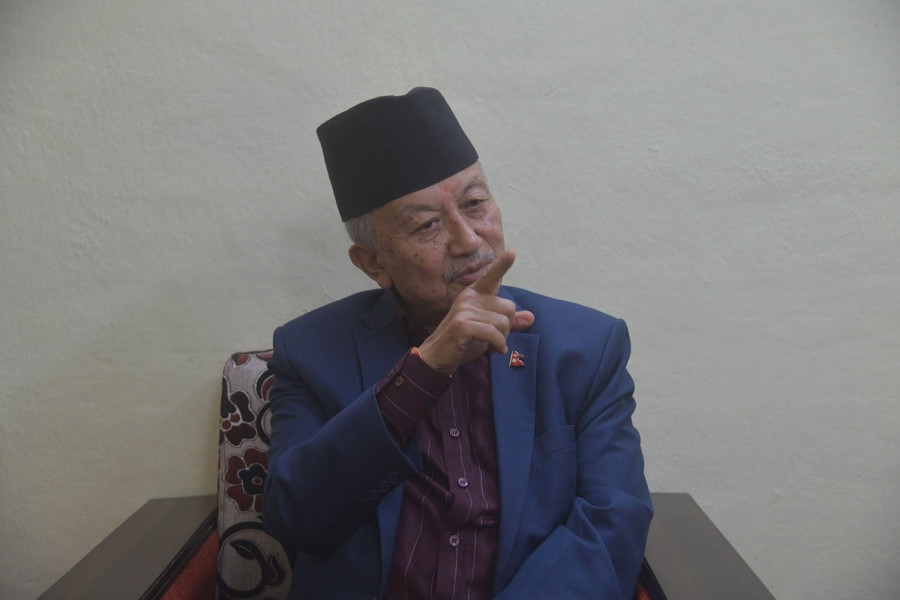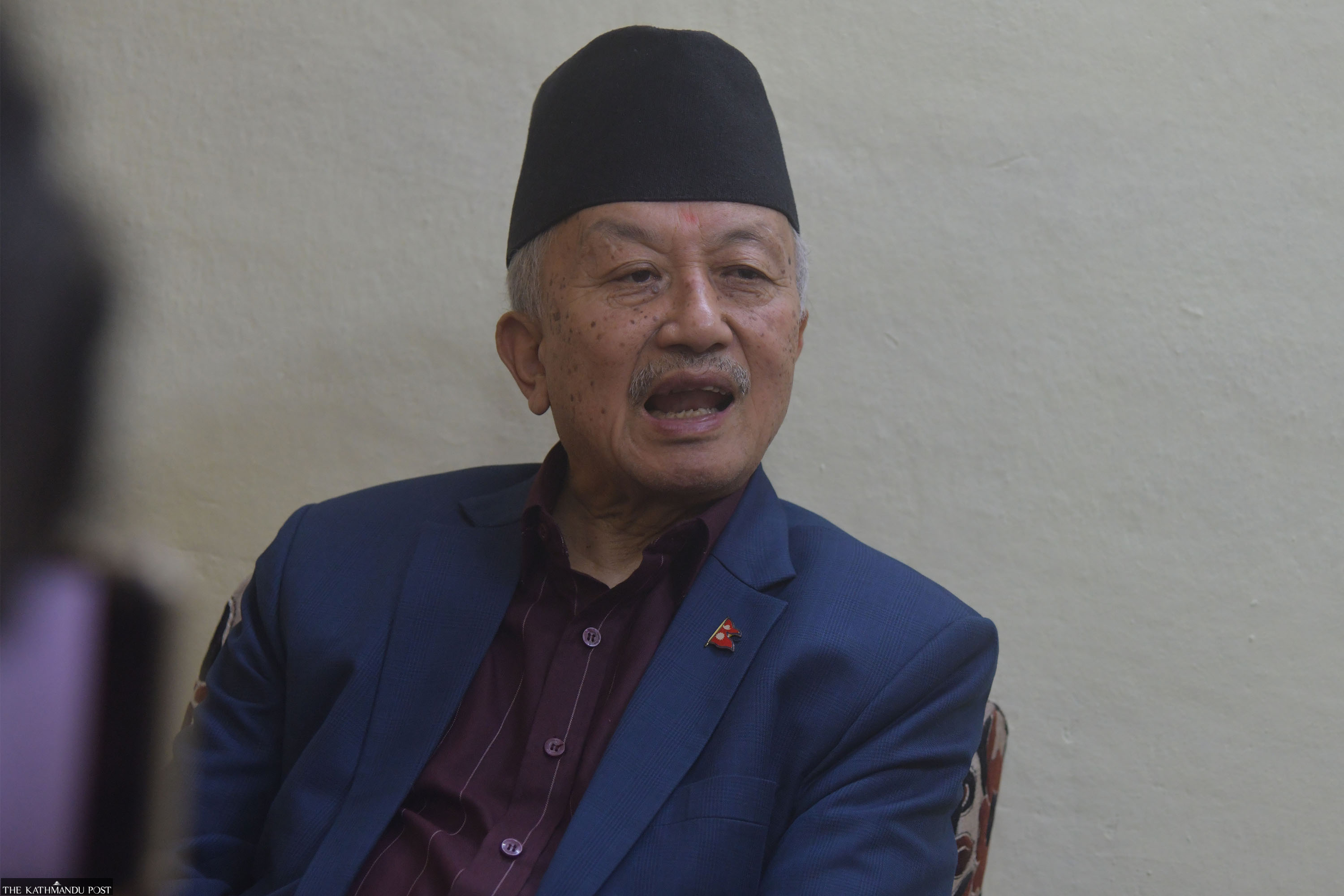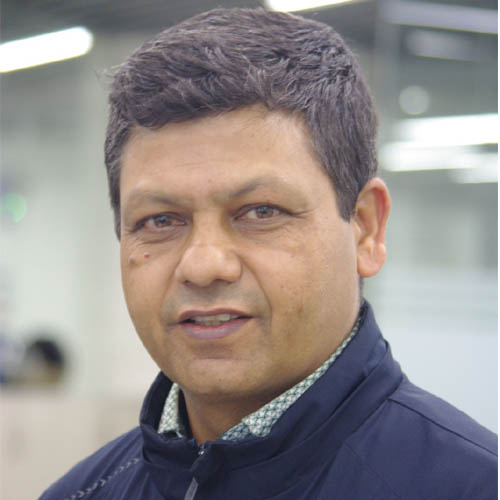Interviews
House obstruction is not the way to go
Subas Chandra Nembang, UML vice-chair, on UML’s modus operandi, the possibility of the party’s reunion with former comrades, and the rumours about former President Bidya Devi Bhandari’s possible return to party politics.
Thira Lal Bhusal & Nishan Khatiwada
Parliament obstruction is a perennial problem in Nepal. The main opposition, CPN-UML, resorted to prolonged obstructions to get its demands addressed in the ongoing House session. Former Speaker Subas Chandra Nembang, now UML vice-chair, has long advocated against House obstructions. The Post’s Thira Lal Bhusal and Nishan Khatiwada sat down with Nembang to talk about the UML’s modus operandi, the possibility of the party’s reunion with former comrades, and the rumours about former President Bidya Devi Bhandari’s possible return to party politics. Excerpts.
Parliament obstruction has become a recurring issue in Nepal. As a former Speaker, why do you think it is happening?
Parliament proceedings must not be obstructed. I raised this issue as a chairperson of the Constituent Assembly (CA) and Speaker of the legislature. Parliamentary regulation doesn’t allow it. However, parties often resort to it by making political decisions. I raised this issue in a recent event as well. If a party takes such a decision and obstructs the House, its leaders must justify the act.
Can’t there be other ways to get the demands addressed?
The ruling parties should know that issues of public concern and critical national issues are raised in Parliament. Why doesn’t the government listen to the lawmakers when they raise valid issues? Opposition parties say House obstruction becomes a compulsion when the government doesn’t listen to them. Take the latest case, for instance: Parliament was obstructed for weeks, demanding the formation of a commission to probe gold smuggling. In the end, we all agreed to form the commission as demanded by the opposition. Had the ruling parties agreed to the same initially, there wouldn’t be such a prolonged obstruction.
Do you think the commission wouldn’t have been formed without House obstruction?
It wouldn’t, and so you see where the problem lies. The major political forces should seriously discuss the matter and find an amicable solution to this problem.
Many argue that the UML insisted on forming a commission to derail the Central Investigation Bureau’s investigation.
We trust the Revenue Investigation Department and the Central Investigation Bureau. But their investigations can’t logically conclude some of our issues. The agencies working under the Home Ministry and the Finance Ministry didn’t seize the gold at the Tribhuvan International Airport. Is this possible without a setting? There are so many questions. A high-level commission is needed because the ministers and other high-ranking government officials must be interrogated. What can be another way to probe it effectively? After all, the agreement to form a commission was reached only after lawmakers, even those from the ruling parties, were convinced of the idea.
But reports prepared by such panels in the past have just gathered dust.
Many journalists ask this question repeatedly. This shows that the media will constantly follow this issue. People will ask this question everywhere. So, shelving the report like in the past won’t be possible.
You advocate no House obstructions, but your party does this the most. Isn’t this contradictory?
No, it’s not. I may not have spoken about it publicly like other leaders, but I have been advocating this idea for many years. During my CA tenure, I worked hard, and we made some achievements. Political parties didn’t hinder CA meetings except for a few cases. Even though the same 601-member body worked as CA and Parliament, they obstructed Parliament proceedings. During my tenure, lawmakers snatched the then-finance minister’s budget briefcase in 2010, broke chairs and even reached the Speaker’s seat. At the time, I reacted lightly, saying they had come to honour me with a shawl! The practice is recurring, and we have failed to end it.
The first session of the current Parliament ended without making a single law, and the ongoing session has passed only one bill—except for the three bills related to the budget. Why so?
We elected committee chairs of Parliament just the other day. I don’t blame any particular party for this delay; it is our collective failure. The most important task is to pass the bills and make the laws. Parliament runs as per the business provided by the government. House meetings stall immediately in the absence of at least one minister. Unfortunately, we don’t even have two independent laws made by this Parliament. This shows our failure. We have to change this. We have many bills to pass without delay and need to work seriously.
Some say it was due to the opposition’s obstruction behind Parliament’s failure to work effectively.
A positive message was spread nationwide the day we agreed to lift Parliament obstruction. But, check Parliament’s business on that day. There was no bill to discuss. After some days, the government registered a bill to amend 81 laws. Is the government giving sufficient business to Parliament? This is the question we must consider seriously. I don’t blame any side. We all need to work sincerely to improve this situation.
There are reports that former President Bidya Devi Bhandari is returning to party [UML] politics.
I heard about this through the media. I have not been informed about it, not even distantly.
What do you say about a former President rejoining active politics? What precedent will it set in Nepali politics?
As I said, it’s not even an issue of debate, as I don’t see any ground for the same [former President’s return to active politics]. If I discuss it, I would indirectly start the debate. So I won’t comment on this.

UML had age and term limits [70 and two, respectively] to hold the party’s executive posts. But the party secretariat meeting suspended the age limit recently. Why so?
We decided to remove the age limit from the party statute through due process. When the age limit was introduced years back, I happily accepted it and said we needed to see how it works. The age bar on employees is universally accepted. But this is not the case in politics. So, it’s a matter of debate.
Will the party review the two-term limit as well?
This issue hasn’t been discussed so far. Let’s see what happens next.
Is there any possibility of the CPN-UML and the CPN (Unified Socialist) reuniting?
Right after the November 20 elections, I told the friends of the Unified Socialist that the people had rejected their move to split the UML. I even appealed to them to return to the mother party and work together as per the people’s verdict. So, I am clear that they have to return.
But the two sides seem to be bitter with each other. Where do you see the problem—in the party members or the leadership?
People may have different opinions about this. I don’t see any legal problems or otherwise. Those in politics should follow certain values and respect the people’s verdicts. Once we accept it, other things can be resolved through the party’s established systems.
With the last elections bringing a new wave of politics, there are assumptions that the UML, the Maoist Centre and the Unified Socialist will unite by the next one. Do you see any such possibility?
The other parties you mentioned have already formed a separate front [Socialist Front], bypassing us. So, there is no such possibility immediately. As far as the new wave is concerned, the public support the new friends have earned isn’t because they did anything exemplary. People had supported the UML, the Congress and the Maoist Centre earlier and have changed their minds now. It’s because of our work ethic, and we must work as per this reality.
So, what should the traditional parties do now?
Traditional parties should correct themselves as per the changed aspirations of the people. They have to prove it through action. We shouldn’t think whatever we are doing is right. Take the latest case in Koshi Province, for instance. Political parties even took the support of the assembly Speaker to form a government there, which was deemed unconstitutional by the Supreme Court. But they did it again. The parties have violated the constitution they made. The people loathe this, and we should stop.
Nepali politicians are used to making and breaking coalitions overnight. Some have started to say the Congress and the UML should form a government for political stability. Any such possibility?
Political stability was one of the critical issues discussed rigorously while drafting the constitution. After lengthy deliberations, we ensured the provision that bars a motion of no confidence for the first two years after the appointment of the Prime Minister and for another year if the motion fails. But the hopes of stability did not come true. But we must ensure political stability in Nepal, so responsible political parties should sit together to discuss how to steer the country in the right direction as per the constitution.




 13.12°C Kathmandu
13.12°C Kathmandu





.jpg&w=200&height=120)







